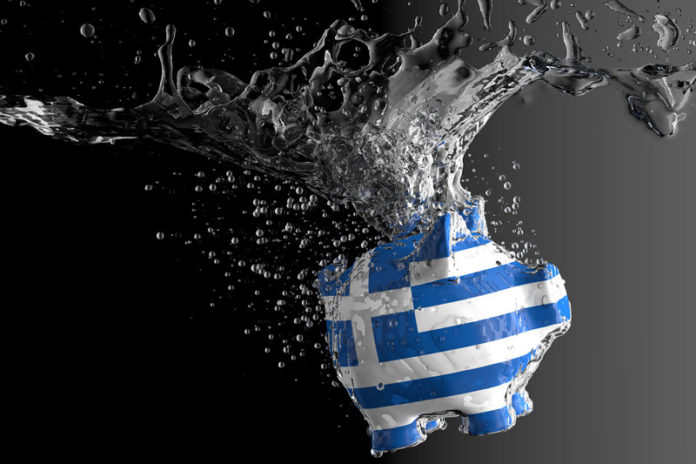Amid an accelerating economic meltdown, Greek banks are considering a “bail in” to remain solvent. According to the Financial Times, bank officials are planning to take 30% from any account with more than €8,000.
The Greek government already shut down huge portions of the country’s financial sector, and limited the amount Greek citizens can withdraw daily to an amount roughly equivalent to $66. Despite the measures, the banks say they are running out of cash – with only about €90 per citizen left to give out.
Greece defaulted on its obligations to the International Monetary Fund last week, and Prime Minister Alexis Tsipras held a referendum July 5 on whether or not the country will meet the demands of the IMF, the EU, and other creditors.
Tsipras urged the citizenry to reject the terms in strong language, saying ““[Our creditors’] proposals, which clearly violate the European rules and the basic rights to work, equality and dignity show that the purpose of some of the partners and institutions was not a viable agreement for all parties, but possibly the humiliation of an entire people.”
The Greeks overwhelmingly agreed with Tsipras, voting 62-38 to reject the EU proposals. In the wake of the vote, lead analysts at JP Morgan Chase told economic journalists at Zero Hedge that a withdrawal from the EU was more likely than not.
Following the vote, the Greek “bank holiday” was extended into this week. German financiers, some of the most powerful voices in the euro zone currently, have told the Greeks that their old offer is off the table, and Syriza, Tsipras’ political party, needs to come up with some firm solutions quickly, or else.
For its part, the European Central Bank (ECB) declared that the “haircut” of the bail ins must be increased following the vote, from 50% of deposits to 60%.
The US Department of Treasury has weighed in, urging the EU to come to accommodation with the Greeks, and Obama met with German Prime Minister Angela Merkel to discuss how to keep Greece in the Eurozone.
Meanwhile, the banks have no obligation to repay their clients. International financial law dictates that checking and savings accounts in a bank are legally the banks’ money. Technically, any deposit someone trusts to a bank makes them an unsecured creditor of that bank.
In point of fact, the IMF has stated an unambiguous right to take depositors’ money without repercussions. Bail ins are “a statutory power of a resolution authority (as opposed to contractual arrangements, such as contingent capital requirements) to restructure the liabilities of a distressed financial institution by writing down its unsecured debt and/or converting it to equity. The statutory bail-in power is intended to achieve a prompt recapitalization and restructuring of the distressed institution.”
So the confiscations that happened in Cyprus are not only perfectly legal everywhere in the world, there is no protection at all implied for the typical depositor.
Former Deputy Governor of the Bank of England Paul Tucker stated all the way back in 2005 that bail ins could happen in the USA “Today… and I mean today.”
The danger is real. According to economist Dr. Ellen Brown, JP Morgan Chase and Bank of America have combined derivatives assets in excess of the entire world’s GDP. Derivatives are commonly referred to as “hedging” investments, thought to decrease risk, but are in fact another form of monetary speculation like any other. When AIG imploded and had to be bailed out, a crash in its derivatives was the primary driver.
Now, Chase and Bank of America have mingled their derivative speculations with their depository operations as a matter of policy, meaning they are risking the money their customers trusted them with in a volatile market that spurred a major economic crisis only a few years back.
To its credit, the FDIC objected to these different arms of the banks being tied together, claiming that a decline in the derivatives market could bankrupt the FDIC itself, but the Federal Reserve endorsed the move.
So how can ordinary Americans protect themselves from the rapacious big banks?
Don’t let them have your money. Credit Unions operate under a different legal structure than banks, and are a good choice for many. Real Estate and physical commodities are other options. Stocks, bonds, or other “stakes” are not subject to unilateral action like bank deposits either.
The government doesn’t have to declare the banks too big to fail in the next crisis – the banks have already done it.





























